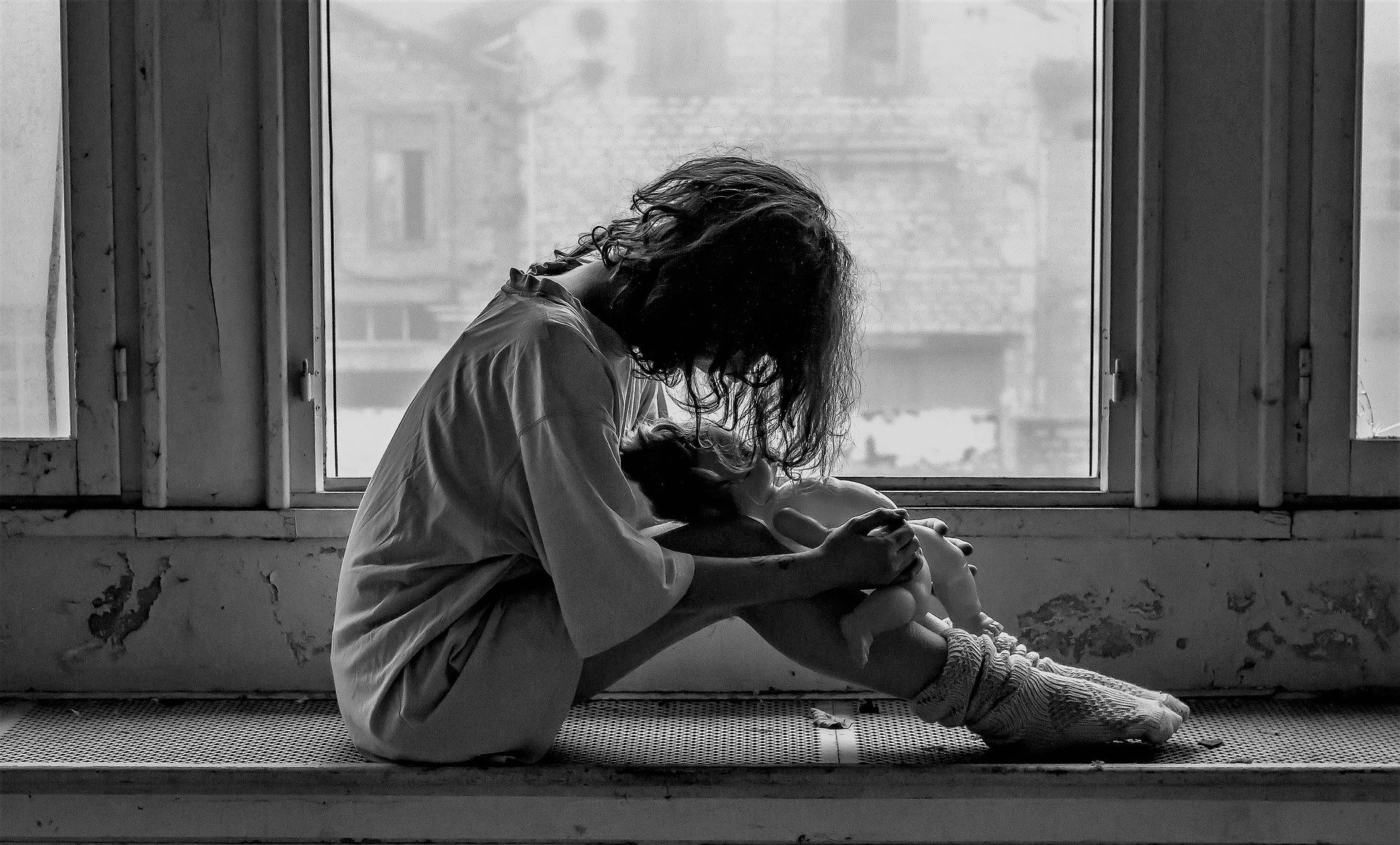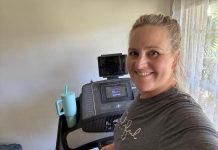
It was 3am, and neither of us had slept.
 My red-faced, two-day-old son was screaming and writhing in my arms, refusing to latch to my bruised and bloody nipples. His deep need for comfort and sustenance was something I didn’t know how to fill. It didn’t seem to matter how much I sang to him or rocked to him or attempted to slow my own heartbeat; the kid did not seem to want to settle.
My red-faced, two-day-old son was screaming and writhing in my arms, refusing to latch to my bruised and bloody nipples. His deep need for comfort and sustenance was something I didn’t know how to fill. It didn’t seem to matter how much I sang to him or rocked to him or attempted to slow my own heartbeat; the kid did not seem to want to settle.
Did he hate me?
He seemed to hate anything I offered him, nothing seemed to be enough. It felt like he was demanding something of me I wasn’t able to give. Trust? Relaxation? Confidence?
And it hit me: he needed my body. Full access to my body.
That’s what it was. He needed it. All of it. I had been splayed open, torn apart, and all I wanted to do was cover myself in soft blankets and sleep. I wanted to curl up and heal. Instead, he demanded I undress and offer myself to him. I felt my first experience of being “touched out.” But so soon?
Is this motherhood? What of the bonding, the oxytocin-washed waking dream of other mothers? This was nothing like I had imagined.
I was angry. Resentful. Why did he demand so much?
His little hands shook as they reached for me, his throat trembling as he let out another wail. As I considered this helpless boy, I realized my anger was misplaced.
I wasn’t angry at him. I was angry at the man who raped me. And the other man who raped me. And the other men who didn’t rape me but still went a little too far and demanded a little too much. Hot tears dripped down my chin and onto his cotton onesie. My body hadn’t been my own for a very long time–this innocent little boy was just a very tangible reminder.
If he would have latched and done what he needed to do, I suppose I could have dissociated. It’s an old trick I learned when I was assaulted—when you’re still and let them take from you, it’s over faster.
Newborns should come with a trigger warning.
When I was pregnant, I worried about birth: what would it feel like, not having control over my body? Would I disassociate once I was in enough pain? What would happen when the midwife or a nurse needed to check my cervix? (I’ll tell you what happened, I panicked and almost kicked that midwife in the stomach.)
For nine months I obsessively worried about whether my body would allow me to give birth; if I was strong enough to tough it out (what if I didn’t want to tough it out? What if I wanted medication?)
I began to feel so anxious I decided to visit a therapist who specialized in perinatal and postnatal counseling. She was warm, inviting, and helped me prepare for birth. But it never occurred to me to talk to her about what would happen after I returned home from the hospital.
The lack of sleep. The screaming. The panic. The constant touching.
It soon became clear the main issue was his need to feed from me. While I had always believed “fed is best,” the anxiety of pregnancy had shifted my views. I had been indoctrinated at our crunchy baby-first hospital where I was taught breast wasn’t just best—it was the only acceptable option.
“The formula companies will send you samples in the mail!” the breastfeeding specialist had informed my prenatal breastfeeding class. “Throw those packets in the trash as soon as they arrive—you don’t want them in your cupboard at 3am convincing you to take the easy way out.” But it was anything but easy when I made the decision to feed him that first bottle.
It turns out, I wasn’t producing enough milk for him. On a good day, I could pump and get 2oz of milk at a time. When his belly was full, he was happy. And when he was happy, I could hold him and not feel like a failure. I could hold him and love him and no longer dream of running away. I could avoid that “touched out” feeling.
I know now, of course, that not all babies are like this, and not all moms are like me. We’re both intense, highly sensitive, emotionally volatile—and the baby I held in my arms all those nights ago was a reflection of a piece of my soul that I didn’t know needed to heal. There he was, bursting through the night and my life, begging to be comforted.
We know the statistics: 1 in 6 women experiences at least one rape or another type of sexual assault in her lifetime, and these are just the numbers we know.
For some women, bearing children and nursing them becomes a truly healing event. Just as my relationship with my husband has begun to heal some of the wounding brought upon me by other men, nursing my second son was a different experience. Maybe I was more relaxed. Maybe he was less demanding. Whatever the reason, I began to understand what other women had told me about the magical bonding experience of breastfeeding a baby. I did not feel the same “touched out” feeling as I had before.
It only lasted a week, but it was a week full of wonder.
My oldest is five now. Just the other day, he woke me up at 3am and demanded I scratch his back. He and his three-year-old brother began wrestling and ignored me when I asked them to stop. Suddenly, they crashed into my legs, their combined body weight pinning me down. My body responded before my brain; springing from my pillow I yelled, “GET OFF ME NOW!!”

Maybe moms with PTSD should come with trigger warnings, too.
It pains me that my delayed reaction to sexual assault shows up when my sons are doing nothing but what is natural for them: exploring, learning, playing. But when they jump on top of me and won’t budge; when the 3-year-old grabs me by my skirt and hides his head underneath it; when my 5-year-old pokes my chest and says “squishy;” it’s more than being “touched out.”
Perhaps you are like me. A mom and a sexual assault survivor. What do we do about it?
We sleep. We allow ourselves to catch up on all the sleep our babies steal from us when they are small. We rest whenever we need to.
We move. We reclaim our bodies as physical extensions of ourselves.
We reach out. We go to therapy, we talk to friends, we take medication.
We rebuild. We raise men (and women) who are respectful and who honor the word “no.” We set healthy boundaries and practice keeping them.
If you are suffering from postpartum anxiety or depression, reach out to Postpartum Support International.
If you need to talk about how an assault is affecting your life today, reach out to RAINN.










